LED Online Seminar 2017 - Working Group 6
--> Back to working group overview
Dear working group members. This is your group page and you will be completing the template gradually as we move through the seminar. Good luck and enjoy your collaboration!
Assignment 1 - Reading and Synthesizing Core Terminology
- You can read more details about this assignment here
- Readings are accessible via the resources page
Step 1: Your Landscape Democracy Manifestoes
Step 2: Define your readings
- Please add your readings selection for the terminology exercise before April 12:
A: Landscape and Democracy - Mapping the Terrain
- Antrop, Marc; Kühne, Olaf (2015) : Concepts of Landscape (Vittoria)
Landscape Concepts:
- Bruns/Bartolomei, 2016 'Concepts of Landscape' (Fardokht)
B: Concepts of Participation
- Arnstein, Sherry R.(1969): A Ladder of Citizen Participation, JAIP, Vol. 35, No. 4 (Vedran Vuković)
- Furco, Andrew (1996): Service-learning: A balanced approach to experiential education.(Ahmed Kamal)
C: Community and Identity
- Welk Von Mossner, Alexa (2014): Cinematic Landscapes, In: Topos, No. 88, 2014.(Ahmed Kamal)
D: Designing
- Hester, Randolph: Life, Liberty and the pursuit of Sustainable Happiness (Vittoria)
- Hester, Randolph: Democratic Drawing - Techniques for Participatory Design.(Ahmed Kamal)
E: Communicating a Vision
- 'Reading the Landscape' by Simon Bell, EMU Tartu (Vedran Vuković)
Steps 3 and 4: Concepts Selection and definition
- Each group member selects three relevant concepts derived from his/her readings and synthesize them/publish them on the wiki by April 30, 2017
- Group members reflect within their groups and define their chosen concepts into a shared definition to be posted on the wiki by May 10, 2017.
- Other group members will be able to comment on the definitions until May 20, 2017
Concepts and definitions
Fardokht Hadjisalimi:[1]
- Concept 1: Concepts of human-centered landscape
- People’s mental landscape constructs relate to (a) General knowledge, (b) Special knowledge. Since perception is culturally contextualized, landscape is a “cultural phenomenon: (a) Sensual responses to landscape, (b) The way people attach meaning and value to it (Bruns, Bartolomei, 2016). (A theoretical model is attached in the linked file)
- Concept 2: Areas that people perceive as landscape
- The landscape is people’s perception of their surroundings, a kind of nostalgia that can be detected. Our perceptions are socially and culturally contextualized, including memory. Landscape’s meanings can be interpreted by our minds and it can be perceived and appreciated differently by insiders and outsiders (Bruns, Bartolomei, 2016).
- Concept 3: Value people give to in areas of their surroundings
- According to constructive theory, we have four layers model about what people give value to in their surroundings (Bruns, Bartolomei, 2016):
1.Physical features and processes of nature and human made artifacts 2.Things that people take note of in areas of surrounding 3.Values that are shared among members of groups, learn from so called “significant others” 4.Individual landscape experience, values and emotions (A brief model and examples are attached in the shared link)
Author 2:
- ......
- .......
- .......
Author 3:
- ......
- .......
- .......
Author 4:
- ......
- .......
- .......
Step 5: Reflection
- Please write, as a group, a 250 words reflection on your discourse and document it here
Step 6: Revised manifestoes
- please look again at your initial manifestoes and update them with any new aspects/prespectives you have taken up during this seminar
- Updatedmanifesto1.jpg
xy's updated manifesto
- Updatedmanifesto2.jpg
xy's updated manifesto
- Updatedmanifesto3.jpg
xy's updated manifesto
- Updatedmanifesto4.jpg
xy's updated manifesto
- Updatedmanifesto5.jpg
xy's updated manifesto
Assignment 2 - Your Landscape Symbols
- You can read more details about this assignment here
Fardokht Hadjisalimi
The National Garden with a historical and governmental concept is located in Tehran, Iran. In the past, because of the military shooting range during the Qajar period, it was called as the Parade Square. Currently important governmental offices and museums are built in this area and lots of people go there to walk and visit the place.
- Symbol yourname photovoice4
add a caption (one paragraph max) description of the symbolism, interpretation, as well as geo-location
- Symbol yourname photovoice5
add a caption (one paragraph max) description of the symbolism, interpretation, as well as geo-location
Ahmed Kamal
- Symbol yourname photovoice4
add a caption (one paragraph max) description of the symbolism, interpretation, as well as geo-location
- Symbol yourname photovoice5
add a caption (one paragraph max) description of the symbolism, interpretation, as well as geo-location
Vedran Vuković
- Symbol yourname photovoice4
add a caption (one paragraph max) description of the symbolism, interpretation, as well as geo-location
- Symbol yourname photovoice5
add a caption (one paragraph max) description of the symbolism, interpretation, as well as geo-location
Landscape Symbols Author 4
- Symbol yourname photovoice1
add a caption (one paragraph max) description of the symbolism, interpretation, as well as geo-location
- Symbol yourname photovoice2
add a caption (one paragraph max) description of the symbolism, interpretation, as well as geo-location
- Symbol yourname photovoice3
add a caption (one paragraph max) description of the symbolism, interpretation, as well as geo-location
- Symbol yourname photovoice4
add a caption (one paragraph max) description of the symbolism, interpretation, as well as geo-location
- Symbol yourname photovoice5
add a caption (one paragraph max) description of the symbolism, interpretation, as well as geo-location
Vittoria Maria Di Giannatale
In this picture I show how we can influence everyday landscape with our own signs and symbols. This graffiti is located in Rimini, which is a town very close by the town where I study in, Cesena. It shows the symbols of Rimini and the park where it is located, a rooster and a peacock. [44°03'50.6"N 12°33'46.0"E]
This picture is unfortunately a bit blurry, but here I have photographed la Rocca Malatestiana, in the city where I study. This is my historical symbol, which belongs to the landscape of my everyday life. It dominates Cesena from above, and it's not only a symbol but also a place where people gather to spend free time. [44°08'10.7"N 12°14'23.7"E]
This is a typical landscape along the costa dei trabocchi. Costa means seashore and a trabocco is an ancient fishing “machine”. Along the shore some of these trabocchi were turned into restaurants, while some are considered as monuments. Trabocchi are an active presence of the landscape, they characterize it, shape it and create gathering and tourism. [42°17'46.6"N 14°27'58.4"E]
Rocca Calascio is characterized by the presence of a medieval castle, from which you can have one of the most striking views of the region of Abruzzo. This is an interesting example of artificial elements melting and coexisting perfectly with natural ones. Nature is dominated by the building but in a balanced way and without being obscured. [42°19'44.0"N 13°41'19.9"E]
This building is considered as an example of not democratic landscape. In an area of small houses and green areas it arises breaking every balance. Next to it you can see an historical house (it is a mill that the municipality is going to renovate) which is totally dominated by it. [44°08'28.7"N 12°14'26.4"E]
Assignment 3 - Role Play on Landscape Democracy "movers and shakers"
- You can read more details about this assignment here
Assignment 4 - Your Landscape Democracy Challenge
- You can read more details about this assignment here
- Each group member will specify a landscape democracy challenge in his/her environment
Landscape Democracy Challenge 1
- Give a title to your challenge
- Yourname challenge 1.jpg
caption: why did you select this case?
- Yourname challenge 2.jpg
caption: what is the issue/conflict (1)
- Yourname challenge 3.jpg
caption: what is the issue/conflict (2)
- Yourname challenge 4.jpg
caption: who are the actors?
Your references:
- ...
- ...
Landscape Democracy Challenge 2
- Give a title to your challenge
- Yourname challenge 1.jpg
caption: why did you select this case?
- Yourname challenge 2.jpg
caption: what is the issue/conflict (1)
- Yourname challenge 3.jpg
caption: what is the issue/conflict (2)
- Yourname challenge 4.jpg
caption: who are the actors?
Your references:
- ...
- ...
Landscape Democracy Challenge 3
- Give a title to your challenge
- Yourname challenge 1.jpg
caption: why did you select this case?
- Yourname challenge 2.jpg
caption: what is the issue/conflict (1)
- Yourname challenge 3.jpg
caption: what is the issue/conflict (2)
- Yourname challenge 4.jpg
caption: who are the actors?
Your references:
- ...
- ...
Landscape Democracy Challenge 4
- Give a title to your challenge
- Yourname challenge 1.jpg
caption: why did you select this case?
- Yourname challenge 2.jpg
caption: what is the issue/conflict (1)
- Yourname challenge 3.jpg
caption: what is the issue/conflict (2)
- Yourname challenge 4.jpg
caption: who are the actors?
Your references:
- ...
- ...
Landscape Democracy Challenge 5
- Give a title to your challenge
- Yourname challenge 1.jpg
caption: why did you select this case?
- Yourname challenge 2.jpg
caption: what is the issue/conflict (1)
- Yourname challenge 3.jpg
caption: what is the issue/conflict (2)
- Yourname challenge 4.jpg
caption: who are the actors?
Your references:
- ...
- ...
Assignment 5 - Your Democratic Change Process
- You can read more details about this assignment here
- After documenting and reflecting on your challenges you will continue jointly with one of these challenges and design a democratic change process
Your Democratic Change Process
- Add the title of your project
- Yourgroupname 2017 powermap.jpg
a power map identifying who is affected by the challenge and who is influencing it
- Yourgroupname 2017 change process (1).jpg
Look at the various methods and tools available and think how they can be applied creatively. Think about the needs of different stakeholder groups - you may need a methodical mix to address them all. Illustrate graphically how these methods/tools might be applied in a short, medium and long-term perspective.
- Yourgroupname 2017 scenario.jpg
a scenario illustrating how these tools can be applied within a short, medium and long term perspective involving the groups you want to address, this should include a process timeline
Reflection
- Evaluate in the group how far your ideas either built on the theoretical frame that has been introduced to you during this seminar or react to this by filling a potential gap (approx 150 words)
Your references
- ....
- ....
- ....
- ....




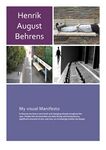
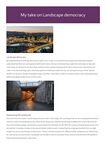
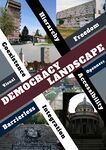





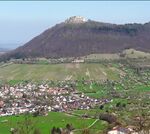
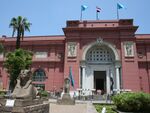

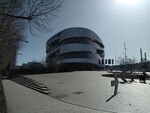
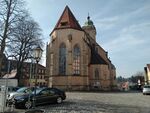
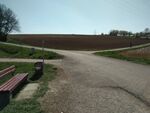
![In this picture you can see the Gran Sasso mountain, right from the window of my house in my hometown Villa Vomano, Abruzzo. This is my example of a strong, powerfull natural landscape symbol, which dominates and characterizes our everyday view. [42°37'04.7"N 13°46'34.6"E]](/images/thumb/0/02/LandscapeSymbol1.jpg/150px-LandscapeSymbol1.jpg)
![In this picture I show how we can influence everyday landscape with our own signs and symbols. This graffiti is located in Rimini, which is a town very close by the town where I study in, Cesena. It shows the symbols of Rimini and the park where it is located, a rooster and a peacock. [44°03'50.6"N 12°33'46.0"E]](/images/thumb/5/53/LandscapeSymbol2.jpg/150px-LandscapeSymbol2.jpg)
![This picture is unfortunately a bit blurry, but here I have photographed la Rocca Malatestiana, in the city where I study. This is my historical symbol, which belongs to the landscape of my everyday life. It dominates Cesena from above, and it's not only a symbol but also a place where people gather to spend free time. [44°08'10.7"N 12°14'23.7"E]](/images/thumb/c/c4/LandscapeSymbol3.jpg/112px-LandscapeSymbol3.jpg)
![This is a typical landscape along the costa dei trabocchi. Costa means seashore and a trabocco is an ancient fishing “machine”. Along the shore some of these trabocchi were turned into restaurants, while some are considered as monuments. Trabocchi are an active presence of the landscape, they characterize it, shape it and create gathering and tourism. [42°17'46.6"N 14°27'58.4"E]](/images/thumb/5/5b/Landscapesymbol4.jpg/150px-Landscapesymbol4.jpg)
![Rocca Calascio is characterized by the presence of a medieval castle, from which you can have one of the most striking views of the region of Abruzzo. This is an interesting example of artificial elements melting and coexisting perfectly with natural ones. Nature is dominated by the building but in a balanced way and without being obscured. [42°19'44.0"N 13°41'19.9"E]](/images/thumb/7/74/Landscapesymbol5.jpg/150px-Landscapesymbol5.jpg)
![This building is considered as an example of not democratic landscape. In an area of small houses and green areas it arises breaking every balance. Next to it you can see an historical house (it is a mill that the municipality is going to renovate) which is totally dominated by it. [44°08'28.7"N 12°14'26.4"E]](/images/thumb/9/9b/Landscapesymbol6.jpg/150px-Landscapesymbol6.jpg)